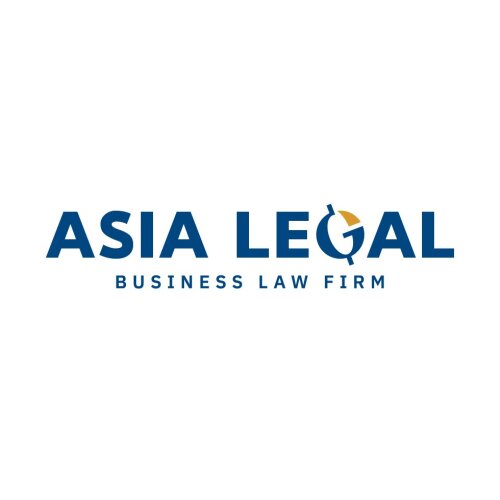Best Media and Entertainment Lawyers in Vietnam
Share your needs with us, get contacted by law firms.
Free. Takes 2 min.
Or refine your search by selecting a city:
List of the best lawyers in Vietnam
About Media and Entertainment Law in Vietnam
Media and Entertainment law in Vietnam covers a wide range of legal aspects relating to the creation, distribution, and commercialization of media and entertainment content. The sector includes films, television, music, advertising, social media, gaming, and the press. Vietnam has been rapidly developing its media and entertainment industry, fueled by a young and tech-savvy population as well as increasing foreign investment. However, it is important to navigate the legal terrain carefully, as Vietnam has specific regulations governing content, censorship, intellectual property rights, and other related areas.
Why You May Need a Lawyer
There are several situations within the media and entertainment industry in Vietnam that might require legal assistance:
- Negotiating contracts for artists, production crews, and distribution deals.
- Handling intellectual property rights for music, films, and other creative works.
- Advising on regulatory compliance, including censorship and content approval by governmental bodies.
- Resolving disputes or litigations related to copyright infringement or contractual issues.
- Assisting in mergers and acquisitions in media and entertainment sectors.
Local Laws Overview
The legal framework for media and entertainment in Vietnam includes a mixture of laws and regulations. Key aspects include:
- Intellectual Property Law: Protects copyrights, trademarks, and patents, which are essential for creators and businesses in media and entertainment.
- Press Law: Governs the operations of print and online media, focusing on issues like censorship and reporting guidelines.
- Advertising Law: Regulates advertising activities to ensure truthful and not misleading advertisements.
- Cybersecurity Law: Sets out the requirements for online content, especially concerning the protection of national security, social order, and ethical standards.
- Film Law: Governs the production, distribution, and exhibition of films in Vietnam, including the censorship process.
Frequently Asked Questions
What types of media content are subject to censorship in Vietnam?
Media content such as films, television shows, and online articles are reviewed by state agencies to ensure they adhere to cultural, political, and social norms established by the Vietnamese government.
How are intellectual property rights enforced in Vietnam?
Intellectual property rights are enforced through the courts or administrative actions. Vietnam has made significant efforts to align its IP laws with international standards, offering several avenues to address infringements.
What should I include in a media contract to make it legally binding in Vietnam?
A media contract should clearly state the scope of work, compensation, duration, rights and obligations of each party, confidentiality clauses, and dispute resolution procedures to be considered legally binding.
Are there specific requirements for foreign investors in the Vietnamese media industry?
Yes, foreign investors face specific requirements, such as needing government approval and often forming joint ventures with local partners, depending on the industry segment they wish to invest in.
Do I need permission to shoot a film in Vietnam?
Yes, you need to apply for filming permits from local authorities and ensure that your script doesn’t conflict with Vietnamese laws and cultural norms.
What is the process for resolving media-related disputes in Vietnam?
Disputes can be resolved through negotiations, arbitration, or court litigation, depending on the nature of the conflict and the clauses included in existing contracts.
Are there restrictions on online content in Vietnam?
Yes, online content is subject to laws aimed at protecting national security, maintaining social order, and upholding ethical standards. Content that is considered politically sensitive, obscene, or otherwise unsuitable may be restricted or removed.
How does Vietnam handle defamation law in media contexts?
Defamation is considered both a civil and a criminal offense. Penalties can include fines and imprisonment, emphasizing the importance of factual reporting and responsible dissemination of information.
How can musicians protect their work in Vietnam?
Musicians can protect their work by registering copyrights for their creations and considering exclusive contracts with publishers or distributors who can help them monetize their work.
What are the penalties for copyright infringement in the media industry?
Penalties can range from monetary fines to imprisonment, depending on the severity of the infringement and whether it was for commercial purposes.
Additional Resources
If you need further information or assistance, consider reaching out to the following resources:
- Ministry of Culture, Sports and Tourism: Oversees cultural and media activities in Vietnam.
- Vietnam Intellectual Property Association: Provides guidance and assistance on IP issues.
- Vietnam Association of Film Producers: Offers support and advice related to the film industry.
- Vietnam Bar Federation: Can help you find qualified legal professionals in media and entertainment law.
Next Steps
If you require legal assistance in the media and entertainment industry in Vietnam, consider taking the following steps:
- Identify your specific legal needs, whether it's contract negotiation, intellectual property protection, or regulatory compliance.
- Consult with a lawyer who specializes in Vietnamese media and entertainment law to get tailored advice and representation.
- Prepare all necessary documentation and outline your goals and concerns before meeting with a legal professional.
- Stay informed about the legal aspects of your industry segment to proactively manage compliance and rights protection.
Lawzana helps you find the best lawyers and law firms in Vietnam through a curated and pre-screened list of qualified legal professionals. Our platform offers rankings and detailed profiles of attorneys and law firms, allowing you to compare based on practice areas, including Media and Entertainment, experience, and client feedback.
Each profile includes a description of the firm's areas of practice, client reviews, team members and partners, year of establishment, spoken languages, office locations, contact information, social media presence, and any published articles or resources. Most firms on our platform speak English and are experienced in both local and international legal matters.
Get a quote from top-rated law firms in Vietnam — quickly, securely, and without unnecessary hassle.
Disclaimer:
The information provided on this page is for general informational purposes only and does not constitute legal advice. While we strive to ensure the accuracy and relevance of the content, legal information may change over time, and interpretations of the law can vary. You should always consult with a qualified legal professional for advice specific to your situation.
We disclaim all liability for actions taken or not taken based on the content of this page. If you believe any information is incorrect or outdated, please contact us, and we will review and update it where appropriate.
Browse media and entertainment law firms by city in Vietnam
Refine your search by selecting a city.















